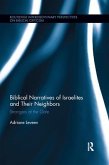In Job's final concession to God, he uses a phrase generally translated from the Hebrew as, Wherefore I abhor myself, and repent in dust and ashes (afar va-eifer). A very small number of scholars see this translation as forced. While most translations have Job referring to himself with the words afar va-eifer, this small group of scholars does not believe the Hebrew to be so clear. They maintain that the phrase afar va-eifer could just as easily be translated as referring to God. In this translation of the text, Job is calling God dust and ashes. Can Job truly be referring to God, not himself, as dust and ashes? How dare he? And if he did, what did this mean theologically? If this linguistic analysis is correct, how are we to understand not only the ending of the book, but also the entire story of Job? These are the questions From Job to the Shoah strives to answer. The conclusions it reaches have profound theological implications, especially in our modern era when the dust and ashes of the six million Jews murdered in the Holocaust still hang heavily above us.
Bitte wählen Sie Ihr Anliegen aus.
Rechnungen
Retourenschein anfordern
Bestellstatus
Storno


